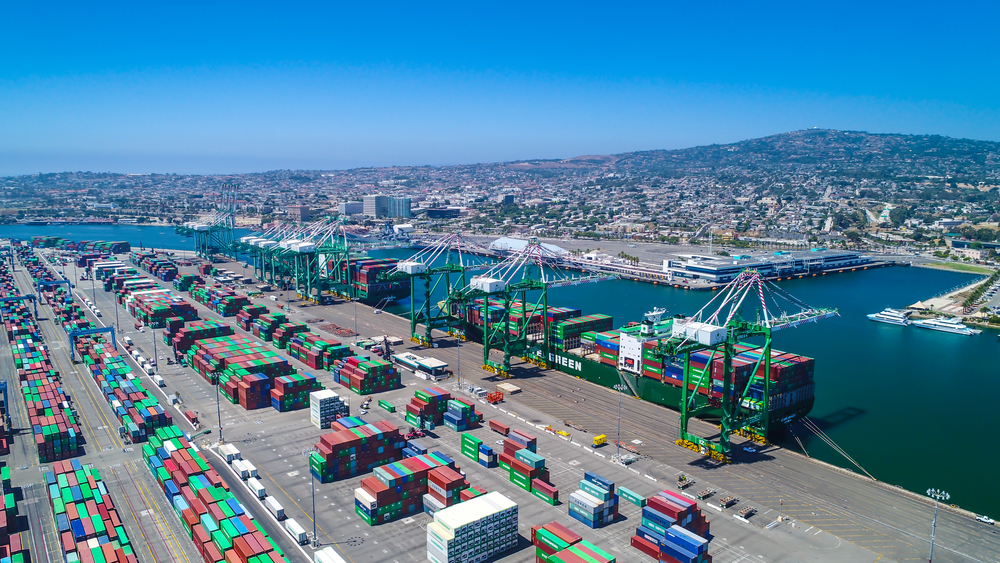There’s turmoil at two of the busiest ports in the country.

Dockworkers on the Pacific coast of the United States, represented by the International Longshore and Warehouse Union, are gearing up for a fierce debate as their contract nears expiry, according to various reports. With more than 22,000 workers tending to many of the busiest ports in the world, is it possible that a disruption in service could affect American agriculture?
The current contract for the dockworkers union is set to expire on July 1, but talks to hammer out a new structure will begin on May 12, reports Laura Curtis at Bloomberg. The union’s expected demands are nothing unexpected: less investment in automation, wages and benefits. Though what’s unusual about this situation is just how much leverage the workers have.
Over the course of the pandemic, workers have processed goods at some of the country’s most important ports. Those include the US’s two busiest ports: the Port of Los Angeles and the Port of Long Beach, as well as the Northwest Seaport Alliance near Seattle and the Port of Oakland. During the past two years, the value of containers brought into these ports has skyrocketed, though not in always beneficial ways to the agricultural industry. The workers at these ports are more vital than ever to the trade and economy of this country.
[RELATED: Supply Chain Crunches Are Affecting Every Corner of Agriculture]
As for agriculture, conditions have gotten thornier. A study from economists at the University of California, Davis and the University of Connecticut found that dramatic inefficiencies have hurt American farmers. The pandemic caused the value of goods imported from Asia to the US to increase to such a degree that it was often more profitable for shippers to send back empty containers to Asia as quickly as possible, rather than loading up with American goods.
Until the pandemic, roughly 40 percent of shipping containers leaving ports in California were loaded with agricultural goods. Empty containers heading back to Asia were a huge and under-discussed problem; the authors of that study suggest that it led to as much as $2.1 billion in lost export sales for American agriculture.
As for the workers who are about to discuss their next contract, there’s been a reasonable amount of saber-rattling, as the union understands its excellent bargaining position and wants to secure as much as possible for its members. The union has demonstrated in the past it is also not afraid to strike; in 2014, workers in a contract negotiation caused billions of dollars in losses due to slowdowns they caused.
American legislators and lobbyists, including the agribusiness-leaning American Farm Bureau, have pushed legislation to help ease the shipping backlogs that currently exist. (At the time of writing, the House and Senate were working together to reconcile the two different versions of the bill that each chamber passed.) But none of that will matter very much if the dockworkers decide to strike.